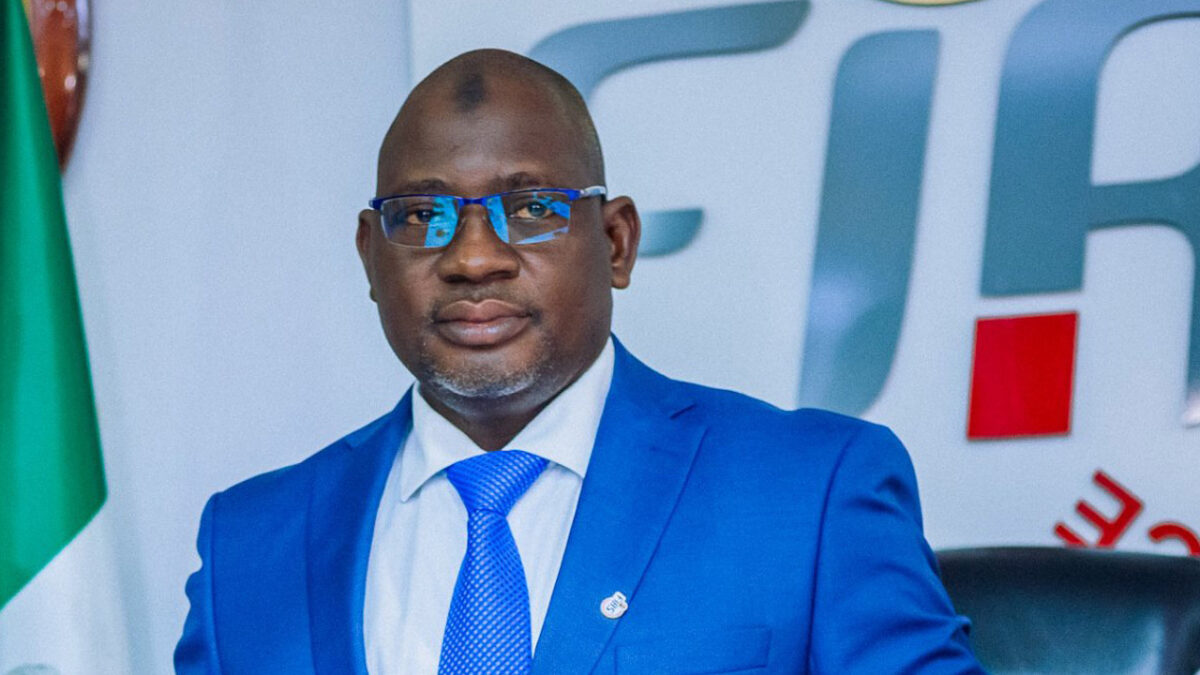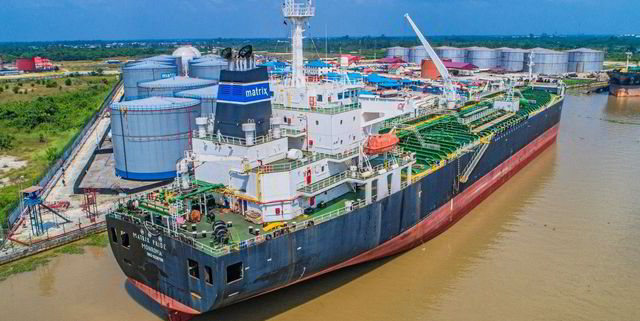
Findings by Shipping Position Daily have revealed that dozens of international shipping companies are set to stop trading with Nigeria following back tax claims imposed on them by the Federal Inland Revenue Service (FIRS) amounting to several millions of dollars.
Recall that the new administration had last month issued a demand of taxes allegedly not paid by tanker owners for the period spanning from 2010 to 2019, with individual vessel claims ranging from $400,000 to $1.1 million.
Prior to the current development, the Federal Inland Revenue Service had in June 2021 issued a circular where it stated that there should be taxation of foreign ships or vessels lifting crude oil from Nigerian territorial waters.
In the notice to international shipping companies deriving income from Nigeria, the agency directed them to regularise their tax affairs no later than 28 February 2022.
After the notice, the FIRS began to issue assessments to affected shipping companies operating ocean-going petroleum tankers. Specifically, the letters were addressed to International Petroleum Vessel Companies (IPVCs) deemed to have “conducted business” in Nigeria.

In the assessment letters, the FIRS either applied a 6% tax plus a 10% penalty and 19% interest on perceived freight income earned by the IPVCs from periods as early as 2011 or assume a treaty rate which is lower in most cases.
In addition to the above, the Finance Act 2023, which was signed in May 2023 before the exit of Muhammadu Buhari as President, introduced new compliance obligations for international shipping companies. Regulators within the industry are now required to request for the Tax Clearance Certificates (TCC) of the shipping companies obtained from the FIRS. Therefore, if IPVCs are unable to resolve any discrepancies in their tax position with the FIRS, they may not receive a TCC. This could impact their ability to conduct business within Nigerian territorial waters or at Nigerian ports.
On the strength of the development, our correspondent gathered recently that a Greek ship owner has been asked to pay $18 million in taxes allegedly incurred between 2011 and 2019.
Already, a glut of unsold Nigerian oil is said to be building up again with as much as half of output due to be loaded this month still searching for buyers, a Bloomberg report said last week.
Traders of Nigeria’s oil said the surplus has been caused in part by a request for back taxes from shipping companies, which caused a wariness among some of the firms about sending their vessels to collect the nation’s crude.
According to global sources, the surplus is a sign that global reductions in oil supply from leading producer nations is yet to tighten every market. There are between 20 and 22 cargoes that remain unsold for July, about half the total, according to the traders of West African crude. Shipments are typically about one million barrels.
The Bloomberg report said Nigeria’s slow sales contrast with a more bullish picture in Angola, where crude supplies are sold out for July and differentials are inching higher. In addition, supplies from neighbouring Gabon and Chad are also mostly sold for July.
According to a source familiar with the matter, Nigeria’s new administration is invoking previously overlooked legislation from 2004 that applies to non-residents. The 2004 law reportedly imposes a tax on freight rate income and profit earned from transporting Nigerian oil.
The letter from FIRS to the International Shipping Companies (ISCs) states that the owed amounts were calculated based on retrieved data from past ship voyages. Additionally, penalty surcharges of 20% were added for each year of alleged non-compliance.
The actual reason behind this initiative is believed to be a concerted effort by the new administration to increase revenue at a time when Nigeria’s President, Bola Ahmed Tinubu, is cancelling fuel subsidies for the public.
The notices have resulted in a surge in charter rates for motor tanker vessels servicing the Nigerian market, as owners are actively avoiding Nigeria due to fears of possible detention by FIRS.
In the notices, FIRS refers to its Information Circular dated May 11, 2023, which pertains to the “tax compliance of international shipping lines deriving income from Nigeria.” FIRS emphasizes that, according to Section 14 of the Companies Income Tax Act (CITA), the full profits of foreign shipping companies, based on freight income derived from Nigeria, are taxable in Nigeria and should be determined in line with the provisions of CITA. The service also states that foreign companies engaged in shipping, which are residents of countries with a double taxation treaty (DTT) with Nigeria, are exempt from Nigerian income tax if the DTT grants unconditional tax exemption. However, if Nigerian resident companies also operate ships in international traffic calling at the ports of the treaty partner, the foreign companies resident in that country are assessable to tax in Nigeria in respect of their freight income in Nigeria and at the rate specified in the respective DTTs.
Responding to fears that the ISCs may boycott Nigeria due to the imposed taxes, Adedoyin Afun; a leading commercial lawyer with extensive experience in structuring, implementing and resolving complex transactions and disputes, including cross-border matters, questioned why some ISCs would refuse to pay taxes for operating in Nigerian waters. He stated that the refusal of some ISCs that have been levied may not lead to a shortage of crude oil, as many other ISCs are also waiting to begin trading with Nigeria.
He further explained: “This is a law that has been in place since maybe 1978. There was an amendment to that law in the Finance Act 2020, which essentially states that if you are a foreign ship owner operating and deriving profit from Nigeria, you should pay tax. As a diligent ship owner, just as I cannot go to their country and trade without paying, they should do the same thing here, and I doubt that will be their intention. Sadly, some of them, in their contracts, always provide that the charterer is the one that will bear the tax and obligations, which is standard to win this contract. Essentially, these people operate as follows: There are those that buy the crude oil from the Nigerian Government or partners like Total or Chevron; they buy it Free on Board (FOB). Then, they have to get a vessel to come and pick up the cargo. So, the buyer enters into a contract with the ship owner. The Charter Party always provides that any taxes and the like will be dealt with by the Charterer. But the sad thing is that this kind of tax is separate from the freight income tax, which needs to be accounted for in their books.”
When asked if the threat by ISCs to leave the country may lead to a shortage in Premium Motor Spirit (PMS), Afun said: “I don’t really think so. The President issued a statement a few days ago stating that they will not take any steps against any vessel in the next six months, and they have asked them to comply within three months. There are other companies that are not affected and will continue trading. The new companies that will come now will be aware that we need to have a plan in case we face similar situations. So, I don’t see it affecting anything. As we’ve seen from the report, we have NNPC and everybody involved.”















